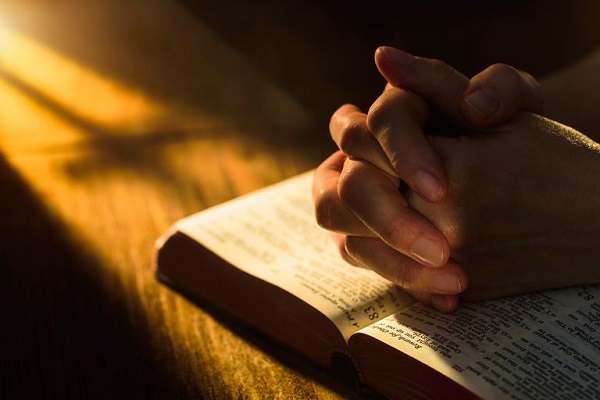The Power of Prayer
18 March 2018‘This kind cannot be driven out by anything but prayer and fasting’ [Mk. 9, 29]. This phrase in the Gospel reading concerning the miraculous cure of the possessed young man suggests the power and value of prayer. Saint John of the Ladder, whom we celebrate today calls it ‘God’s devout tyrant’, since it won’t leave us in peace.
The message of Holy Scripture, the teaching f the Fathers of the Church, consider prayer to be a natural expression of the soul, a vital need, and also the supreme, unique, privilege of us as human beings. This is because prayer has its roots in the very beginning of the creation of the human race. After the fall of the first-created, we hear God saying ‘Adam, where are you?’ This dialogue of prayer which was inaugurated then has continued to this day and will continue as long as there’s a today in the life of the world. Because what is prayer, in fact? It’s a conversation and dialogue between us and God. It’s our eventful progress towards finding God, from Whom we’ve become estranged. The discourse and experience of prayer is a profound and unexplored theme. It’s both known and unknown, because it’s linked to the very mystery of the human soul itself.

Elements of prayer
On many occasions in the New Testament we read that faith, hope and patience are necessary components of prayer. Trust in the person of Christ and surrender to His love. In many instances in the Gospels, we see Christ placing instructive obstacles in the way of meeting the requests of people who are suffering unfairly. But He knows that faith needs to struggle against everything and will overcome. The Lord’s refusal to cure an illness usually tests the person’s faith, makes their prayer more fervent, encourages their humility and, in the end, leads to a miracle and to salvation. Only powerful prayers, fervent faith, and true persistence break down all the barriers and obstacles and open the gates of heaven. ‘Ask and it will be given to you; seek and you will find, knock and it will be opened for you. For everyone who asks will receive; those who seek will find, and to those who knock, it will be opened. What person among you, if their son asked for bread, would give him a stone?’ (Matth. 7, 7-9). A believer has the certainty, that God, in His all-knowing wisdom, is well aware of our needs and our requests. He doesn’t need us to tell Him what we want. But we, the faithful have the sense that we’re God’s children and that He’s our Father. This spiritual relationship gives us the right to trust in Him.
Through prayer, we fall into His embrace and we ask not to be deprived of His grace and mercy, because our existence and life depends on Him. Without Him, everything grows dark, collapses and is annihilated. ‘Without me, you can do nothing’. We confess in humility that ‘We have sinned against you alone, but you alone do we worship’. Our prayer connects and unites us with God. It becomes the mother of all virtues which protects our breasts with the best armour. Those who feel neither the need nor the power of prayer confirm the message of the Revelation that they have the reputation of being alive but are dead (Rev. 3, 1). They’re hearts that don’t beat, souls that don’t breathe.
The void of God’s silence
Yet there are moments in our lives when we’re disappointed. At certain difficult times of harsh trial we ask God why and He doesn’t answer. We knock at His door and He doesn’t open. The void of God’s silence shatters us. Then perhaps we should ask ourselves whether we’re not receiving because we’re asking wrongly (James 4, 9). Perhaps we’re asking for the wrong thing at the wrong time. So would what we’re asking for benefit or harm us?
My friends, God alone knows the answer to that. On some occasions, God’s ‘No’ means ‘For my thoughts are not your thoughts’ (Is. 55, 8). Then we submit to His will and change our own. We restructure our priorities and the plans for our lives. Then our prayer matures and brings us greater benefit. This is why we must never abandon it. Amen.






